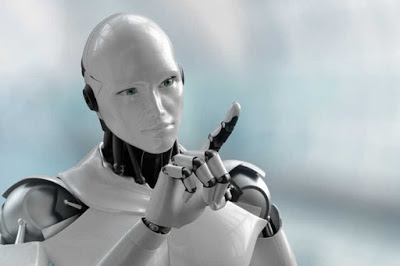|
Answer
Dear RoboAuthor Company
The answer is YES or NO,
depending on the country the alleged copyright infringement took place.
Originality is the touchstone of copyright protection. Authorship is
primary. Authorship of a work eligible for copyright protection
implies a “creation of the human mind”. This is why in the absence of
originality and authorship as contemplated under copyright laws,
conferring copyright to works created or generated by robots, other
machines, or any nonhuman author is a big challenge. Generally, while
some jurisdictions don’t confer copyright in AI-generated works or works
by nonhuman authors, other jurisdictions confer copyright on
these works but in favour of the human programmer
or owner.
Copyright Protection in the US and Australia: Only a human being
can have copyright under the United States copyright law and the Australian
Copyright Act.
In the US, the copyright statute
does not recognize copyright protection for works that are not created by
a human being. By implication, this includes world created by robots or
other machines.
Recently, the US judiciary had the opportunity to decide on copyright
protection for works by a non-human—a monkey who took selfies. In that
case—Naruto v Slater No. 16-15469 (9th Cir. 2018)—the US Court of
Appeals for the Ninth Circuit (Ninth Circuit) held that a monkey can’t
own any copyright to his selfies. Why? Because only humans can own
copyright under US law.
Apart from Naruto’s case, the US
Copyright office “will refuse to register a claim if it determines that a
human being did not create the work.” Works “produced by machine or mere
mechanical process that operates randomly or automatically without any
creative input or intervention from a human author” is excluded from
copyright protection.
Similarly, under the Australian
Copyright Act, there is no copyright protection for works created by
nonhumans. This is because works are contemplated to be the “creations of
the human mind”, and not that of a robot or an animal, however
intelligent they may be.
This is why in a recent Australian case Acohs Pty Ltd v Ucorp Pty Ltd,
the court refused to recognize copyright in a work created by computer
program. In that case, HTML-based data was converted by a program into
datasheets. Because the court found that the datasheets that were created
autonomously by a program did not have a sole human author, the court
held that the datasheets were not protectable by copyright.
Therefore, as far as US and
Australia are concerned, RoboCopy has no copyright in the articles. Even
your company Artify, owners of RoboCopy, cannot claim any copyright.
Copyright doesn’t apply, except there was a creative input by a human
being.
Copyright
Protection in Europe and Nigeria, excluding the UK
In Europe, originality is the
touchstone of copyright protection. This originality is not only about
newness but connected with an author’s intellectual creation. This
implies the personality of the author. Robots or machines are not known
to have a personality.
In Infopaq International A/S
v Danske Dagblades Forening [2012] EUECJ C-302/10, the Court of
Justice of the European Union (CJEU) decided a case involving data
capture by holding that copyright applies only if the work is an
expression of the intellectual creation of their author.
Law and policy in Europe is that
for now AI does not have the degree of autonomy that would grant
personality or legal status to robots.
In Nigeria, copyright does not
apply to works created by robots or machines. Under section 2(1) of the
Nigerian Copyright Act, copyright is conferred on eligible works by an
author who must be a ‘qualified person’s. Under the Act, a ‘qualified
person’ is (a) an individual who is a citizen of, or is domiciled in
Nigeria; or (b) a body corporate incorporated by or under the laws of
Nigeria. Robots and machines are therefore completely out.
Therefore, both in Europe and
Nigeria, RoboAuthor will have no copyright over the articles in question.
Copyright Protection in the UK and New Zealand
In the UK, works by robots or
other automated machines are generally treated as computer-generated
works, this qualifying such works for copyright protection, but in favour
of the human programmer. Section 178 of the Copyright, Designs and
Patents Act (CDPA) defines a computer-generated work as a work “generated
by computer in circumstances such that there is no human author of the
work”.
Under section 9(3) of the CDPA,
for “a literary, dramatic, musical or artistic work which is
computer-generated”, copyright applies to “the author [who] shall be
taken to be the person by whom the arrangements necessary for the
creation of the work are undertaken.”
So regardless of the autonomy of
a robot or machine, as long as the robot or machine was created by a
human programmer, the human programmer is the copyright owner, subject to
originality.
The legal implication of the
position above is that the news articles written or generated by
RoboAuthor enjoy copyright protection, but grants copyright to your
company Artify, not RoboAuthor. On this basis, you can bring an
copyright-infringement action against the global news company in the UK.
The New Zealand copyright law is
similar to the UK regime. So your action against the global news company
may be successful in New Zealand.
For legal advice and assistance, consult an IP lawyer or law firm.
IP ABC
Best wishes
Follow-up
questions, if any, are welcomed.
Via @infusionlawyers
|

